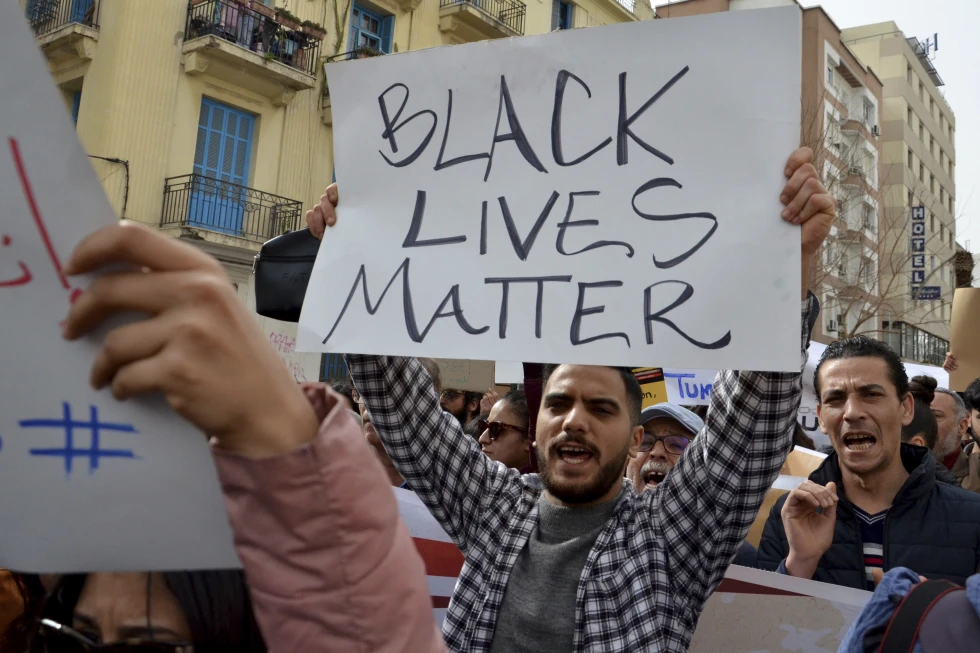This week saw the arrest of an anti-discrimination activist in Tunisia amidst a money laundering inquiry, underscoring the worsening plight faced by migrants and their advocates.
Saadia Mosbah, a Black activist, was detained, and authorities searched her residence in connection with an investigation into the finances of the Mnemty association she leads.
According to Bassem Trifi, president of the Tunisian League for the Defense of Human Rights, Mosbah’s arrest followed her social media post decrying racism she encountered in her efforts to assist sub-Saharan African migrants.
This incident highlights the ongoing challenges confronting migrants in Tunisia, with authorities intensifying efforts to monitor coastal areas, where many attempt perilous journeys to Europe.
During a national security council meeting focused on irregular migration, Tunisian President Kais Saied criticized associations receiving significant foreign funding, branding them as “traitors and
“Tunisia is deepening the crisis and promoting the idea that there is no solution,” Ben Amor told Radio Mosaique.
According to a report from an NGO, approximately 244 migrants, the majority originating from outside Tunisia, have either died or gone missing along the country’s Mediterranean coast this year. This figure includes 24 individuals whose bodies were discovered last week.
Based on government data released Monday, the report highlights a decline in undocumented migrants attempting to cross the Mediterranean, attributed to Tunisian authorities increasingly intercepting such attempts. This trend applies to migrants originating from Tunisia as well as those transiting through the country en route to Europe.
In April, authorities directly thwarted 209 migration attempts and prevented over 8,200 migrants, predominantly from sub-Saharan African nations, from reaching Italy. The Tunisian Coast Guard has intercepted more than 21,000 migrants attempting to reach Italy this year.
European leaders, including Italian Premier Giorgia Meloni, have made managing migration to avert scenes of chaos and desperation along Italian shores a key priority. This effort has involved visits to Tunis and collaborative efforts with North African and European officials to combat human trafficking, enhance border security, and patrol coastlines to prevent maritime fatalities.
Despite these efforts, thousands of migrants continue to embark on the perilous journey, departing from the Tunisian coast north of Sfax and aiming for Italian islands like Lampedusa, located approximately 130 kilometers (81 miles) away.
The European Union aims to address migration through various policies, including development assistance, voluntary return and repatriation programs, and fostering closer partnerships with neighboring governments to strengthen border enforcement. Financial commitments have been made to countries like Tunisia, Mauritania, and Egypt to support governance, migrant services, and border control.
While European leaders view agreements, such as the $1.1 billion deal with Tunisia, as models, Tunisian President Saied has vowed not to allow his country to serve as a mere “border guard” for Europe.
Comparative figures from Italy’s Interior Ministry on May 8 reveal a significant reduction in migrant arrivals in Italy in 2024 compared to the same period last year. The UN refugee agency reported that while over 24,000 migrants traveled from Tunisia to Italy in the first four months of 2023, fewer than 8,000 have successfully completed the journey during the same period this year.

